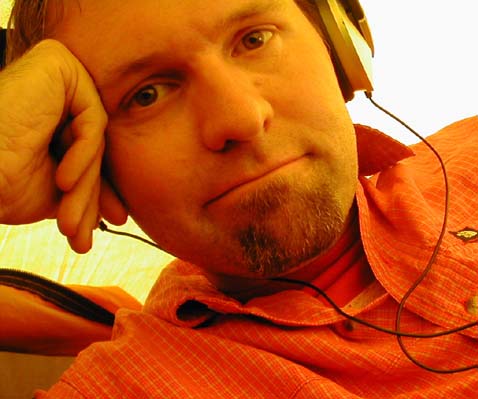Apologies to U2 for the backhanded plagiarism -- I figure Bono would be
in support of me working in Africa anyway....
Just got back from the village, where I spent two weeks trying to learn
some Kikaonde, working as a 'peasant farmer', as one of the men called
himself, and generally getting sunburned. I made it through 800 pages
of War and Peace in between working in the fields, fetching water, and
so forth. I couldn't help think about the contrast between the last
time I read it in a hot, overheated Yale Russian literature class, and
my life this week, poking holes in the ground with a sharp stick to put
down fertilizer and cutting sweet potato shoots to transplant to a new
field. Yale, and western civilization, thinks that it knows all there
is to know about philosophy and life, but few of my literature
professors would have had a clue what was going on in Lubofu. Tolstoy,
on the other hand, I think would have had a good grip on where my host
family was coming from.
I stayed with the Yanjishas, one of the more respected families in the
village of Lubofu. Every morning, I'd awake with the family around
daybreak (6-ish) staring through the mosquito net gauze which makes the
room seem half-dreamlike when you wake up. Usually I'd be awoken by the
rooster crowing or the three skinny dogs chasing away some would-be
intruder. Most nights the rats and mice would wake me up once or twice
(one memorable night they tried to crawl into bed with me -- I objected
to that) as they bang around in the room where they store their corn. I
am struck again by Paul Brand's discovery in the 50's during his work
with leprosy patients that many patients were losing fingers to the rats
at night, and the introduction of cats as part of his medical treatment
for leprosy. The Yanjishas are quite bothered by the rats, but the cat
that they had was killed by some dogs, and when they poison the mice,
new ones from the surrounding fields and grassland move back in within
the month. I'm going to try to find them a new cat, but they are
strangly scarce here in Zambia. In the meantime they make do, like they
do with many other things -- old fertilizer bags picked apart for
string, melted plastic bags to patch the hole in the bottom of the pot,
reusing tea bags until they won't make more tea.
I asked them to treat me like they would treat one of their own family
when I got there, wanting to do what they would do. I quickly learned
that 'family' means something very different to me than it does to them,
as they took me around the village, introducing me to their neighbors,
who it turns out were all family in some way or another, including the
mysterious relation who was their 'brother, but different father,
different mother." After awhile I decided to simply accept the fact
that they were all members of the same loose family and stopped trying
to untangle the threads. Needless to say, they didn't treat me like
family, they treated me like a king.
The Yanjishas only were able to have two children, but they have since
taken in 3 of their grandchildren, who they are raising as their own, as
well as their uncle, as well as another young man who they hired to help
with the oxen and with the fields. Every member of the village seems to
have tragedy lurking in the background in some way, in some ways similar
to America, although since it is a small town, everyone knows each
others business in a way that we don't have in the cities at home.
Their cousin's husband died of pneumonia a few years ago, and she has
seven kids, so they have taken the two eldest to put them through
school. The hired young man's father was killed by one of the coffin
incidents I wrote about before just two months ago. The village has
been hit hard by HIV. Mrs. Yanjisha is a member of a woman's club who
helps to take care of HIV orphans -- 8 of them to take care of 100 kids.
At church, it's great to watch children being passed from one mother to
another during church, no reserves about how you would treat anothers
child. Commonly we'd feed several kids from around the village for
lunch or dinner as they would stop by. People know that they are
looking out for each other. Community is stronger and more important
than anywhere else I've been.
Subscribe to:
Post Comments (Atom)

1 comment:
good year
Post a Comment